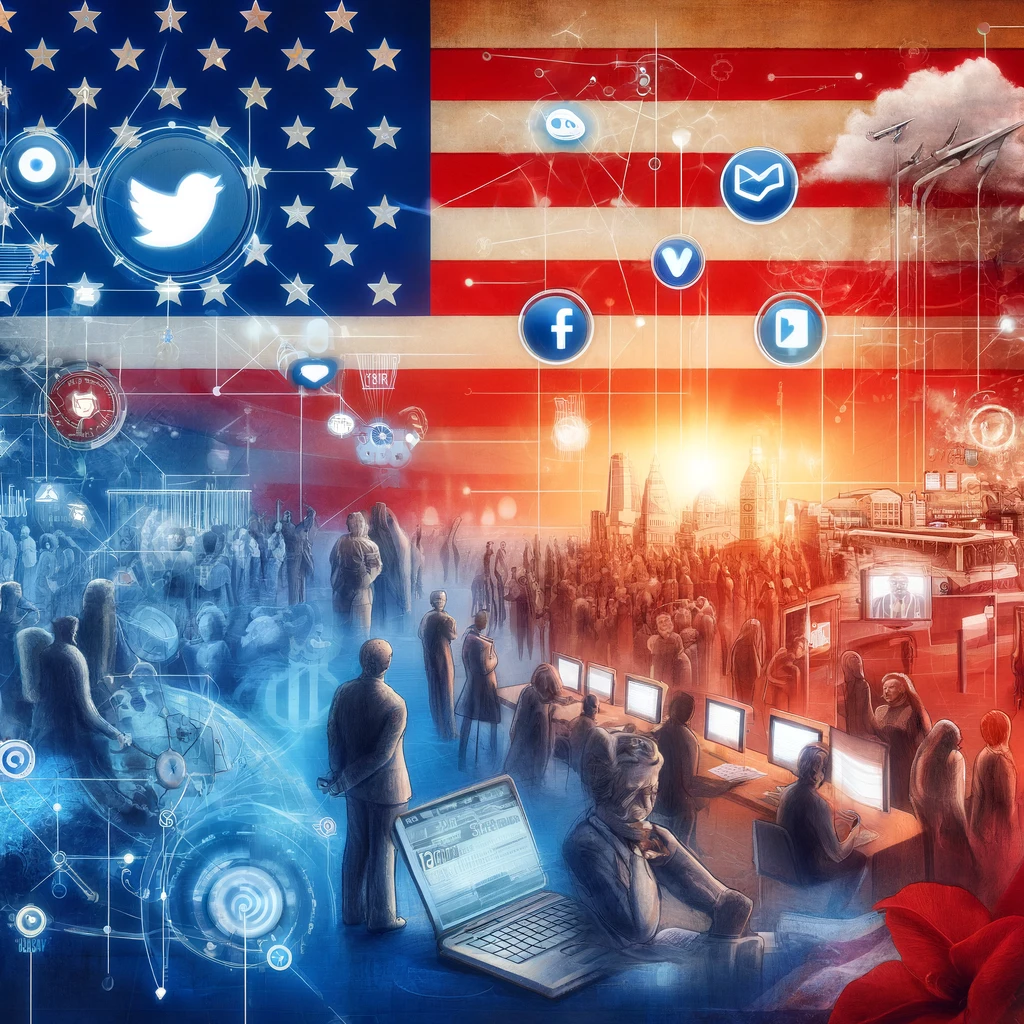
QAnon, a complex and far-reaching conspiracy theory, has had a surprising and unsettling influence on American elections in recent years. Originating from a series of cryptic internet posts by an anonymous user known as “Q,” QAnon followers believe in a deep state conspiracy against former President Donald Trump and assert that a secret cabal of satanic pedophiles controls the world. While the theory might sound outlandish to many, its political implications have been profound, weaving a narrative that has affected voter perceptions, candidate endorsements, and even the policies and rhetoric of major political parties in the United States.
The impact of QAnon on American elections first became visible during the 2018 midterm elections but was more pronounced in the 2020 presidential elections. Followers of QAnon have been active in spreading disinformation and conspiracy theories about election fraud and other electoral processes. These activities aim to undermine trust in the electoral system, sowing doubt about the legitimacy of election outcomes. The spread of these conspiracy theories has not only influenced how individuals vote but also fueled a broader political movement that challenges the foundational aspects of democratic governance.
QAnon’s reach into the political arena extends beyond mere theory into active participation. Several candidates who openly endorsed or supported QAnon theories ran for office in 2020, with a few securing positions in Congress. This development marked a significant shift in American politics, where such fringe beliefs typically remained on the periphery. The endorsement of QAnon theories by elected officials lends a semblance of legitimacy to these baseless claims, potentially influencing legislative priorities and the political discourse at the highest levels of government.
Furthermore, the influence of QAnon on American elections interacts with the media landscape in complex ways. Social media platforms, where QAnon initially gained traction, play a significant role in the dissemination of its theories. Algorithms that promote content based on engagement can inadvertently amplify conspiracy theories, reaching wide audiences quickly and efficiently. This ease of spread makes countering misinformation challenging, as debunked or flagged content can resurface or be reinterpreted by its adherents continuously.
The response to the growing influence of QAnon has varied. Some political leaders and parties have denounced the conspiracy theory and its implications for undermining democratic institutions and norms. Conversely, others have either tacitly or openly encouraged the spread of QAnon theories, especially if such endorsements are believed to mobilize the base during elections. This politicization of conspiracy theories poses significant risks, as it can lead to increased polarization, where the factual basis of political debate erodes, and partisanship intensifies.
Election security and the integrity of the democratic process have also come under threat due to QAnon’s narratives. The conspiracy theory directly challenges the transparency and fairness of the electoral process, claiming without evidence that elections are rigged and that voter fraud is widespread. These claims have led to real-world consequences, including harassment of election officials and a general increase in hostility during electoral periods. The January 6, 2021, attack on the U.S. Capitol was a stark manifestation of the dangers posed by such unfounded beliefs, as many participants were motivated by conspiracy theories endorsed by QAnon.
Looking forward, the persistence of QAnon poses a conundrum for handling misinformation in the context of free speech and political expression. While efforts have increased to curb the spread of misinformation through fact-checking and moderating online content, these measures have also sparked debates about censorship and the role of tech companies in regulating speech. The challenge lies in balancing the need to protect democratic discourse and processes from harmful conspiracies while ensuring that efforts to control misinformation do not themselves become tools for political manipulation.
The effects of QAnon on American elections are likely to continue as long as the underlying drivers—political disillusionment, distrust in institutions, and the echo chambers created by social media—persist. Addressing these root causes requires a concerted effort not only from political leaders and institutions but also from civil society and educational systems to foster a more informed and resilient electorate.
In conclusion, the rise of QAnon and its integration into the fabric of American politics is a development that reflects broader societal shifts and the powerful role of digital media in shaping political narratives. Its impact on American elections highlights the challenges facing democracies in the digital age, where misinformation can alter the course of political events and fundamentally threaten the principles of democratic governance.
Illustration depicting the internet and media campaigns during American elections. The image features digital motifs such as social media icons and network data streams, with diverse people interacting through various digital devices, set against a backdrop that includes symbolic elements like the American flag. This visual captures the influence of the modern digital landscape on political campaigns.